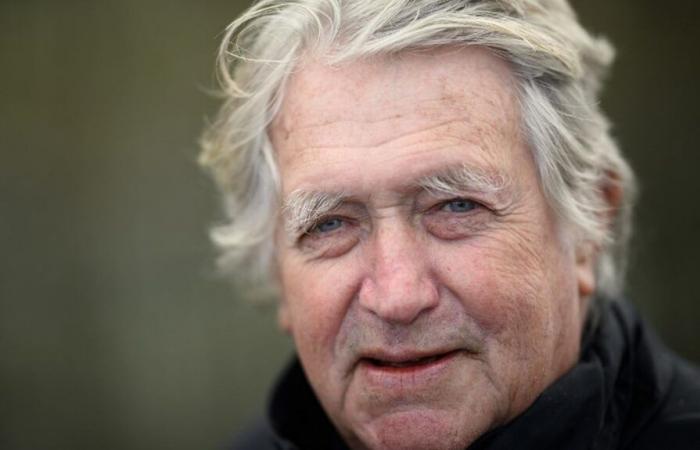Staying the course while drifting, facing the indomitable and measuring yourself against the untouchable with conviction and passion as your one and only compass, could sum up the man that Olivier de Kersauson is. His first trip was initiatory, hitchhiking, and it led him to sail. At night at sea, his ears become his eyes, this is what he writes, explains and tells in his latest work, Before the memory fades. Some maritime remarkspublished by Cherche-Midi.
franceinfo: What relationship do you have with memory?
Olivier de Kersauson: I have been very ill, I have been treated, well cared for and I believe that this has accelerated my aging, so part of my memory is less good and I am walking on the border of Alzheimer’s in a very happy way, since n ‘having no more memory, I have nothing left. There are whole parts of my existence that are completely hidden, but that doesn’t matter.
Is memory selective?
If memory were truly selective, what type of selection does it make? Do we remember our happiness or do we remember our sorrows? I have a happy nature which means that what interests me is action. I don’t remember long and I only liked the action, so I’m happy in the action. Memory is a side effect and a collateral effect of the existence I had. But it’s not an end, I was happy while acting.
We have the impression that for you, an emotion is a fragility?
No, I think that we should not let ourselves be dominated by emotions and to have soul in the etymological sense of the term, for me, is to dominate our emotions. We need to have a plan so as not to remain shaken by life, by the jolts that emotions can cause. They can cause wonderful moments.
“I have always been happy to receive, but I have been happy to be able to create.”
Olivier de Kersausonat franceinfo
You say that you had to discover the world so as not to realize at 50 that you had not lived in the right place. At 80, do you feel like you’ve gotten to where you want to go?
Yes, on that side, everything is perfect. I remember very well this kind of worry, of saying, you could miss out on your life, but I didn’t want to miss out on the place of my life. Touring the world allowed me to see many places where I could have lived and been happy and I am glad to know them.
What does it mean to succeed in life then?
It’s luck first of all. I’m very lucky, I think about it all the time. We have homework too. My two grandfathers died in the war of 14 and died young. We tell ourselves that we stole their lives from them and you have the chance to live this life in full, so you have a duty to exist. Gérard d’Aboville said: “We have to do it for those who would have liked to do it and who couldn’t”. Solidarity is in there. That is to say, if I had been the eldest of three children and my father had died in the war, I would not have been able to do what I did. I would have had to more or less raise my brothers and sisters, help my mother. I was free, I never had that and I had no constraints. When we have no constraints, we have duties, that’s how I see it.
Isn’t what makes you stronger than others that you have succeeded in overcoming loneliness and making it an ally?
I always liked being alone. You know, a family of eight, there’s always a chore thrown at you, so isolation is kind of a good story. I understood very little that we were alone. I understood that and I remember being upset and then being happy about it. I understood that life slipped through our fingers like water.
“Growing up, I understood that you had to rely on no one, only yourself.”
Olivier de Kersausonat franceinfo
So it makes for a pretty simple life.
There is still a form of regret that you have and that you do not necessarily always live very well, it is those who have disappeared and who have accompanied you.
The people I loved sometimes haunt me, yes, I found it important not to abandon them. I am from them, they are from me and they made me. Their disappearance may have saddened me, but often, it gave me the duty to be worthy of the people who loved you and not to give in. We have 150 times the opportunity to take the easy way out because it’s hard, and I thought that, because of them, we had to take the hard way. It was the way to show solidarity and pay tribute to them. It’s archaic and quite basic, I know, but I don’t care, that’s how I think and that’s how I’ve tried to live and that suits me. I did not dwell on the bruises, the sorrows, and that is why I have always tried to live the reality of what we experience in its magic and its beauty. And then to keep the link. The people who love you built you and, loving, built you too. So I think it’s all part of the best part of my life, I think.






